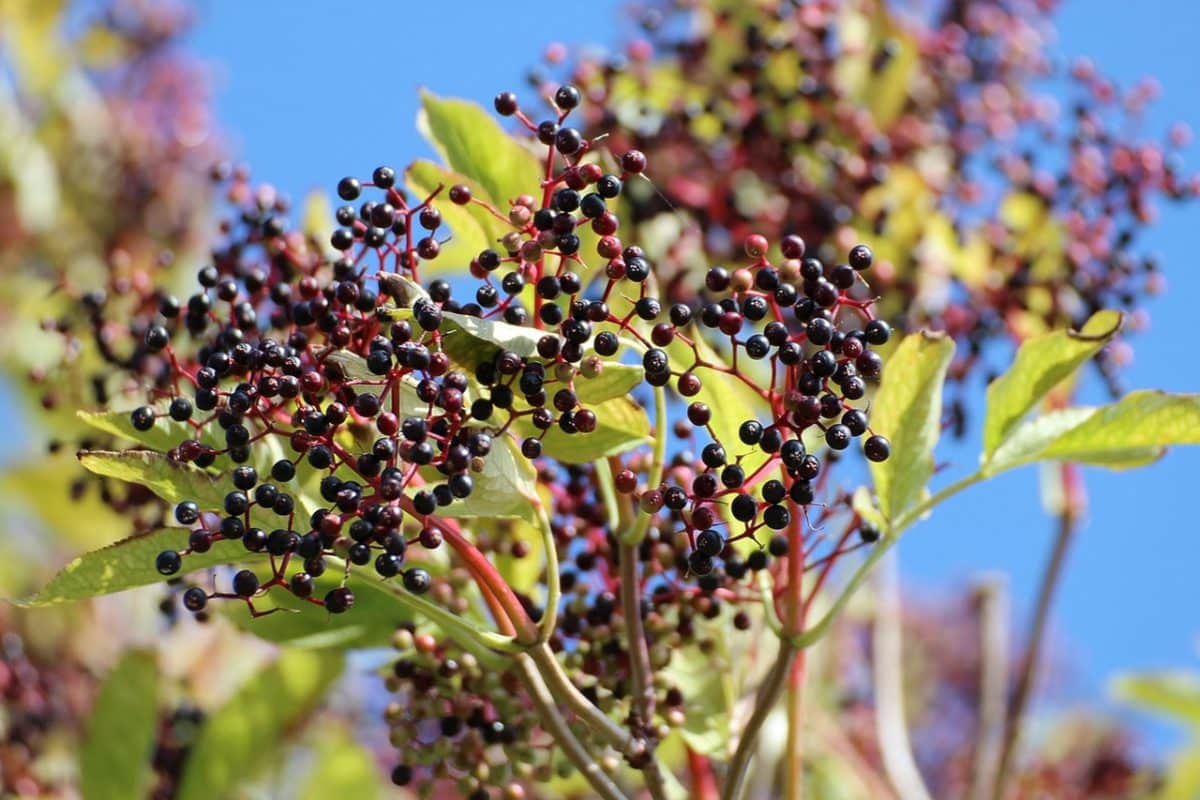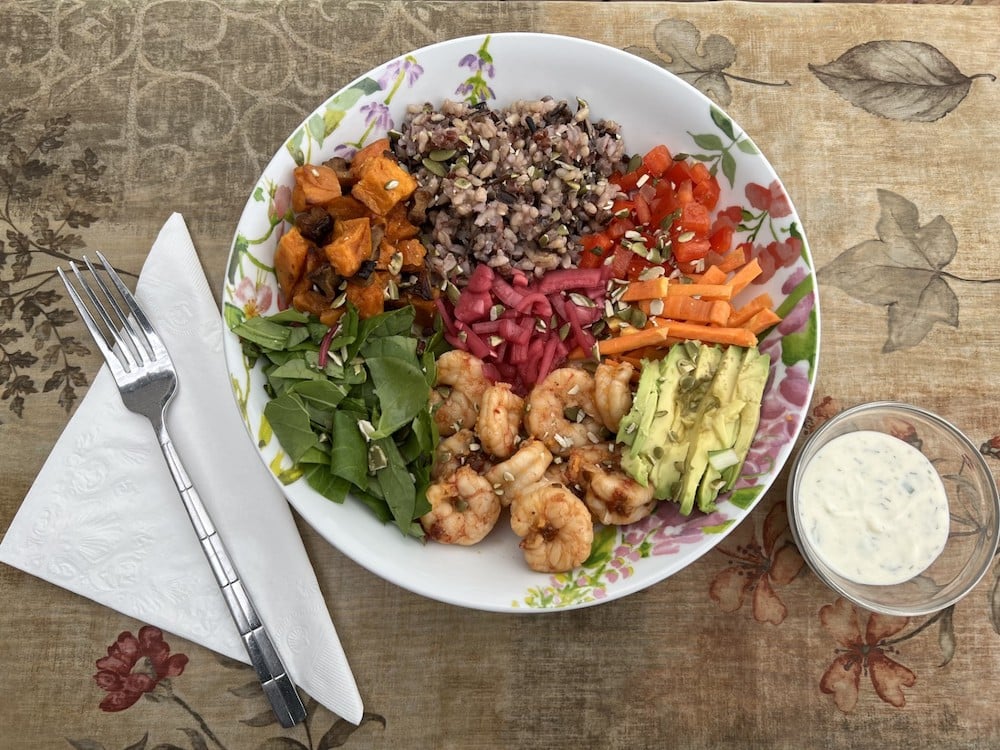
Share this post!
I keep an ongoing supply of elderberry juice concentrate in my refrigerator through the winter months and add a splash to my glass of water every morning. Why? Because I have two young boys, who are always bringing germs into the house. Also, because the science on elderberry’s ability to stave off colds and the flu is pretty rock solid.
What is Elderberry?
Black elderberries are the fruits of a flowering plant that goes by the scientific name of Sambucus nigra. Sambucus plants grow widely in Europe, where both the flowers and the berries are used in jams, cordials, soft drinks, and teas.
Elderberries and elderflowers have a long tradition of medicinal use, dating back thousands of years to the time of Hippocrates. Many of its traditional uses—for conditions ranging from diarrhea to joint pains to the plague—have never been verified by science. However, modern research is beginning to unravel that elderberries have antibacterial, antiviral, and other impressive ways of supporting immune defenses.
Can Elderberry Treat Colds and Flu?
When an outbreak of the flu occurred in Panama in 1993, researchers provided standardized elderberry extract to a sample of people and compared the outcomes with a sample of people not receiving elderberry. What they found was that 90% of the people taking elderberry recovered from the flu within two days, whereas most of the people not taking elderberry recovered within six. Blood tests from the study showed that elderberry extract had antiviral activity against both influenza A and influenza B.
Researchers then conducted a similar study in Norway during the 1999-2000 flu season. They found that people who took 15 mL of elderberry syrup four times a day, beginning within the first 48 hours of feeling sick, recovered four days faster than those taking a placebo.
Both of these studies showed that people could get back to feeling better about four days sooner if they started taking elderberry at the onset of feeling sick. That is a pretty big deal, adding up to almost an entire week of productivity.
Can Elderberry Prevent Colds and Flu?
A study published in 2016 looked at the effects of elderberry during airline travel, a time when respiratory infections can spread like wildfire. Study participants completed surveys about respiratory symptoms just before travel and up to four days after travel. Those taking the elderberry experienced fewer, less severe, and more fleeting upper respiratory symptoms than travelers not taking elderberry.
There aren’t a lot of studies looking at the preventive effects of elderberry, so we can’t make any sweeping claims. Still, elderflower tea and elderberry juice are simple drinks that we can add to our daily routine with a negligible risk of safety concerns. If splashing a little elderberry juice into my glass of water every morning gives my immune system even a tiny boost, I’m all for it.
5 Ways to Use Elderberry This Winter
Elderberries can be prepared or purchased in a variety of forms, and there are different reasons to choose one over another. Following are five different ways to use elderberry products through the cold and flu season.
1. Elderberry Juice
Elderberry juice is not very sweet. You can get an elderberry juice concentrate, for example, that has less than one gram of sugar in a teaspoon. Even though it is not sweet, the taste is mild and pleasant when just a splash is diluted in water. You can also get elderberry juice that has not been concentrated, sometimes mixed with other juices to add sweetness. If you are a juice-drinker already, consider switching over to elderberry juice for the winter months.
2. Tea
Another way to make elderberries or elderflowers a part of your daily routine is to take them as a tea. You can brew it from dried elderberries of elderflowers or find a commercial brand. Sipping on a steamy cup of elderberry tea before bed might be a nice routine to relax and support your immune defenses through the winter.
3. Syrup
Elderberry syrup is more concentrated than juice. Commercial brands sell syrups that are made with either honey or glycerin. You can make your own syrup at home, by simmering dried elderberries, ginger, cinnamon, cloves, and honey. Because a syrup is more concentrated than a juice or a tea, I would reserve this for times when you feel a cold coming on.
4. Pills or Lozenges
Several herbal and dietary supplement companies make products with dried elderberry powder in capsules, tablets, or lozenges. These are an easy way to consume a more concentrated amount than from a juice or a tea. Like the syrup, I would reserve these for times when your body needs a little extra immune support.
5. Wine
I’m not suggesting that drinking wine is the best way to support our immune defenses, but I couldn’t leave this one out. Who knows—you might glean a tiny bit of benefit from the antioxidants in the glass!
Let us know your favorite ways to use elderberries in the comments below!
Sarah Cook, ND, is an instructor at the Nutrition Therapy Institute.
Image: Black Round Fruits at Daytime by Pixabay is licensed under CC0 1.0
Share this post!


















